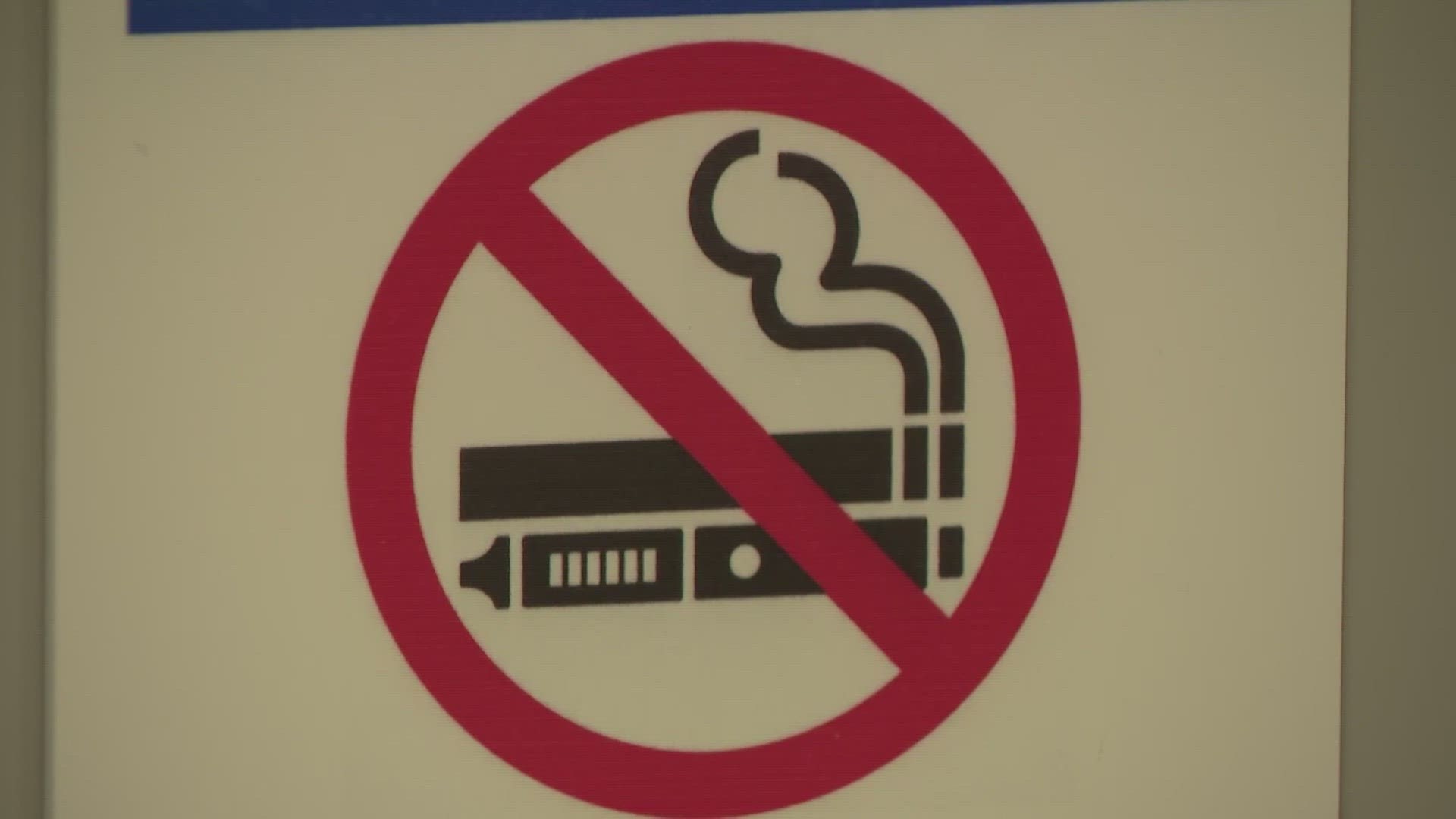TEMPLE, Texas — With the school years beginning across Texas, a new law will ramp up punishments for vaping on campuses.
House Bill 114 heightens punishments for students caught with vapes at school.
"Ever since vape pens have become available vaping has become kind of a new fad or new wave," said Temple ISD Superintendent Bobby Ott.
Starting Sept. 1, HB 114 will require that public school students who are caught with vapes at the school to be placed in an alternative schooling environment, or Disciplinary Alternative Education Program (DEAP), as defined by the State.
Ott said students' cases will be discussed in a hearing and the length of punishment will depend on "what's actually in the vape pen" and will be handled "on a case-by-case basis."
"With this new law it's automatic," Ott said. "It could be 15 days, it could be 60 days."
DEAP programs and facilities are required for all public schools as outlined in Chapter 37 of the Texas Education Code to address disciplinary issues that violate Title 5 of the Texas penal code, as well as crimes and violations that happen on school grounds.
"I'm glad to see this piece of legislation," Ott said. "I think this is something that is adversely affecting our students and adversely affecting our society."
Students put into the DEAP program, Ott said, will lose "the privilege" of participating in programs under the University Interscholastic League, extracurricular activities like "fine arts competitions and athletic competitions" and more.
"A lot of students are motivated because of their participation in extracurricular activities," Ott said. "I think parents are going to be more alert and work more closely with school systems on issues around vaping."
Ott said students who are put into the DEAP program will continue their school work "as normal" and are required to attend the program in a predetermined "uniform" where they work mainly online through a "self-pace" system.
"We do everything we can to make sure they don't suffer, it's really about (missing out on) the privileges they have that come with public schools," Ott said.
Ott said not only will students lose the ability to participate in their regular activities but they "will also lose the ability to attend those as a spectator."
"If it's a school event on school property, then it applies," Ott said. "Even if it's after hours, or passing periods between English and welding class, it applies."
Temple High junior Martin Rodriguez said vaping is a daily issue at school.
"You can't walk into any room without someone having a vape," Rodriguez said. "It's mainly in the restrooms, most of the restrooms have been closed down for the boys because there's so many kids vaping in there."
Rodriguez said last school year student vaping was on the administration's radar and "they started putting limits on how many people could use the restroom (at one time)."
Ott said the DEAP programs will make a major difference across the state to stop what he calls "a gateway drug" from making its way into schools.
"By cracking down then theoretically you would close the door that would lead to harder substances," Ott said.
Ott said the district will be holding parent sessions in the fall to talk about the dangers of teen vaping and urges parents to "talk to your students because this is serious."
"You want to have those conversations now, instead of something happening," Ott said. "Is it really worth the risk to experiment, use, possess or distribute on school property?"
More from 6 News:

